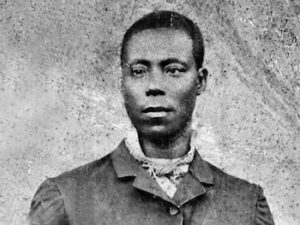
Thomas Jennings
*This date in 1791 is celebrated as the birth date of Thomas Jennings, a Black tradesman and abolitionist.
Thomas L. Jennings was born to a free Black family in New York City. As a youth, he learned a trade as a tailor. He built a business and married a woman named Elizabeth from Delaware, who was born into slavery. Under New York's gradual abolition law of 1799, she was converted to an indentured servant and was not eligible for full emancipation until 1827.
At the time, the abolition law freed slave children born after July 4, 1799, but only after they had served “apprenticeships” of twenty-eight years for men and twenty-five for women, thus compensating owners for the future loss of their property. He and his wife had three children: Matilda, Elizabeth, and James. Jennings built a business as a tailor and spent his early earnings on legal fees to purchase his wife and some of their children out of slavery. He was instrumental in the founding and was a trustee of the Abyssinian Baptist Church. He supported the abolitionist movement and worked for the rights of free Blacks.
In 1821, he was the first black to be granted a patent for his dry cleaning method. With the proceeds of his invention, he bought his wife and children’s freedom, then continued his civil rights work. He was active on issues related to emigration to other countries; opposing colonization in Africa, as proposed by the American Colonization Society; and supporting the expansion of suffrage for Black men. Jennings became active in working for civil rights for the Black community. In 1831, he was selected as assistant secretary to the First Annual National Negro Convention in Philadelphia, Pennsylvania.
After his daughter, Elizabeth, was forcibly removed from a "whites only" streetcar in New York City, he organized a movement against racial segregation in public transit; private companies provided the services. Elizabeth Jennings won her case in 1854. Along with James McCune Smith and Rev. James W.C. Pennington, he created the Legal Rights Association in 1855, a pioneering civil rights organization in New York City, New York. He operated and owned a tailoring business. Thomas Jennings died on February 12, 1856.